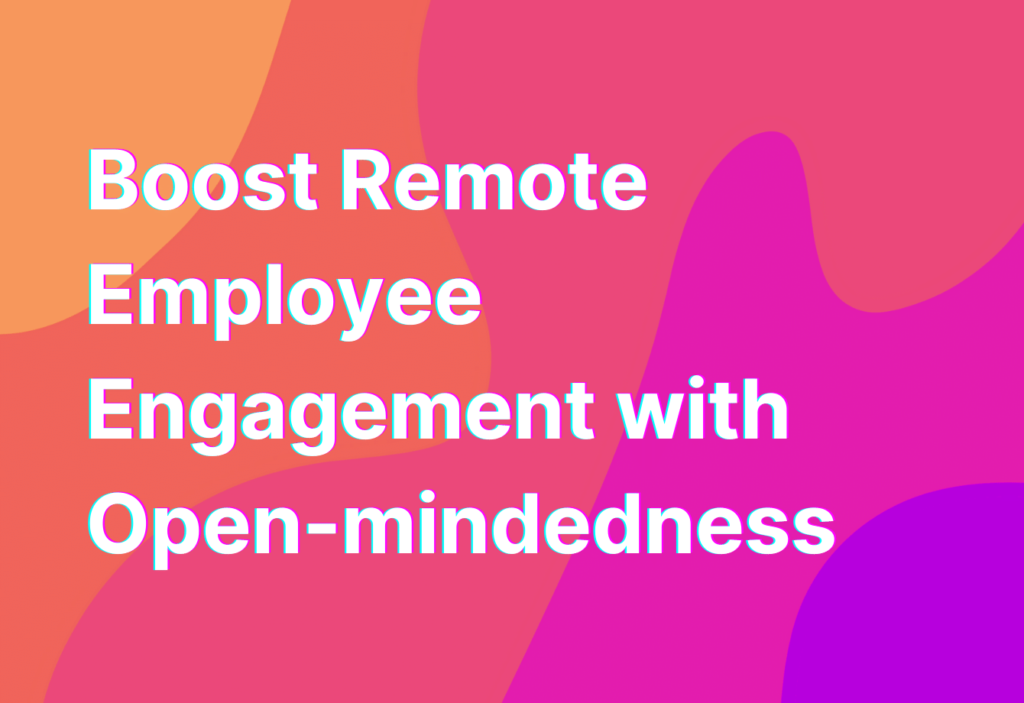Boost Remote Employee Engagement with Open-mindedness
As remote work continues to gain popularity, it’s important for companies to find ways to keep their remote employees engaged and motivated. One key factor in achieving this is open-mindedness. When both employers and employees approach remote work with an open mind, it can lead to increased productivity, collaboration, and overall job satisfaction. In this article, we will explore the benefits of open-mindedness in remote work and provide practical tips for fostering an open-minded culture.
The Benefits of Open-mindedness in Remote Work
Open-mindedness is the willingness to consider new ideas, perspectives, and approaches. In the context of remote work, open-mindedness can have several positive effects:
- Enhanced creativity and innovation: When employees feel comfortable sharing their ideas and opinions, it fosters a culture of creativity and innovation. Open-mindedness encourages remote workers to think outside the box and come up with fresh solutions to challenges.
- Improved communication and collaboration: Remote teams rely heavily on effective communication and collaboration tools. When team members are open-minded, they are more likely to actively listen to others, understand different viewpoints, and work together towards common goals.
- Increased adaptability: Remote work often requires flexibility and adaptability. Open-minded employees are more willing to embrace change, try new tools or processes, and adapt to evolving work environments.
- Higher employee engagement: When employees feel valued and heard, they are more engaged in their work. Open-mindedness creates an inclusive environment where remote workers feel comfortable expressing their thoughts and opinions, leading to higher levels of job satisfaction and motivation.
- Stronger relationships and trust: Open-mindedness fosters trust and strengthens relationships among remote team members. When employees feel that their ideas are respected and valued, it builds a sense of trust and camaraderie within the team.
Tips for Fostering Open-mindedness in Remote Teams
Now that we understand the benefits of open-mindedness in remote work, let’s explore some practical tips for fostering an open-minded culture:
- Encourage diverse perspectives: Actively seek out and encourage diverse perspectives within your remote team. This can be done by assigning cross-functional projects, organizing brainstorming sessions, or creating channels for open discussions.
- Promote active listening: Encourage remote employees to practice active listening by giving their full attention to others during virtual meetings or discussions. This includes avoiding distractions, asking clarifying questions, and summarizing key points.
- Embrace constructive feedback: Foster a culture where constructive feedback is welcomed and encouraged. Remote workers should feel comfortable providing feedback to their colleagues and managers, as well as receiving feedback in a constructive and non-judgmental manner.
- Provide learning opportunities: Offer remote employees opportunities for continuous learning and professional development. This can include online courses, webinars, or access to industry resources. By investing in their growth, you show that you value their development and encourage open-mindedness.
- Lead by example: As a leader or manager of a remote team, it’s important to lead by example. Demonstrate open-mindedness by actively seeking input from your team, considering different perspectives, and being open to change.
By implementing these tips, you can create a culture of open-mindedness within your remote team, leading to increased engagement, collaboration, and overall success.
Wrapping Up
Open-mindedness plays a crucial role in boosting remote employee engagement. When both employers and employees approach remote work with an open mind, it fosters creativity, improves communication, and strengthens relationships. By encouraging diverse perspectives, promoting active listening, embracing feedback, providing learning opportunities, and leading by example, you can create an open-minded culture within your remote team.
If you’re interested in learning more about remote work performance metrics and employee engagement, check out this link. It provides valuable insights and strategies for measuring and improving remote team performance.


